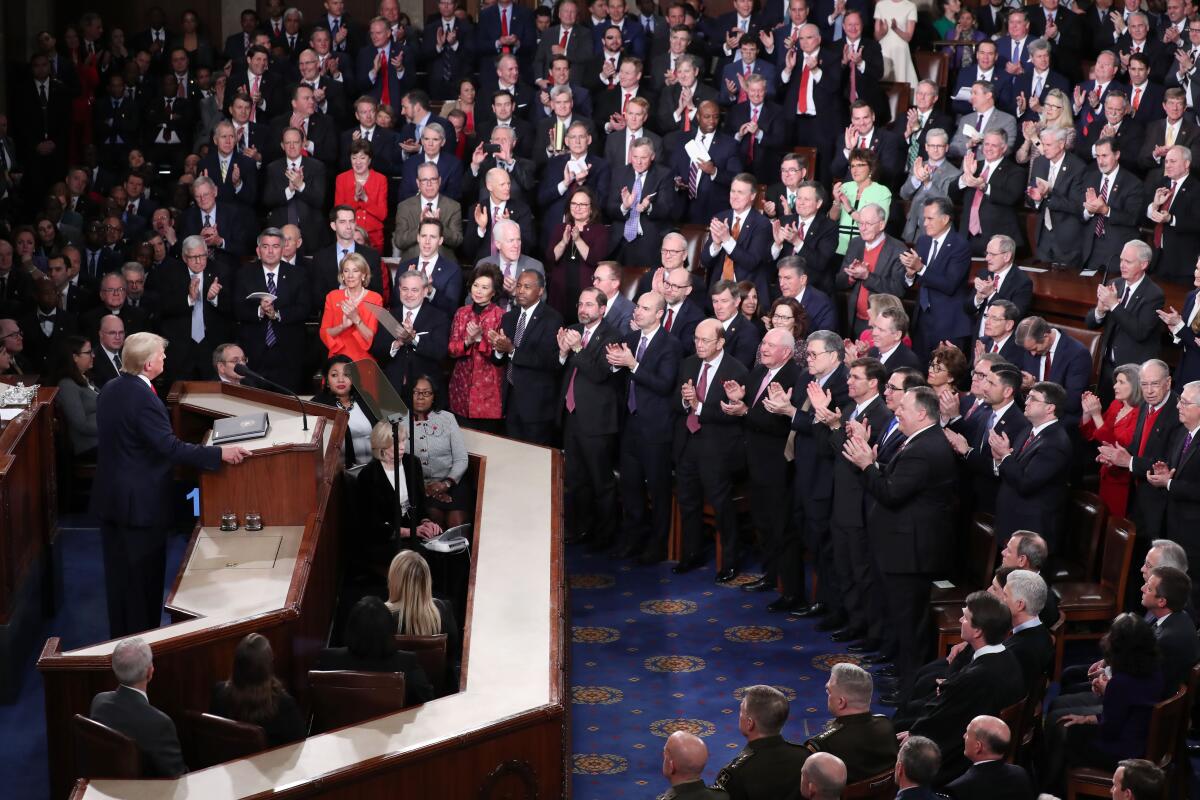Letters to the Editor: Congress’ unwillingness to compromise poses a grave threat

To the editor: The first Continental Congress began in 1774, a loose confederation of delegates from most of the 13 British colonies, to discuss the intolerable situation wrought by King George III. Thereafter, further discussion between delegates led to the Declaration of Independence in 1776, the Second Continental Congress and ultimately the Constitutional Convention in 1787. (“Aftershocks from Trump’s impeachment further fracture civility and cooperation in Washington,” editorial, Feb. 3)
Throughout this period, the delegates, all with disparate interests, nevertheless convened to talk, debate and eventually agree upon how to organize their new nation.
The politics we see today still show the same ardent debate, but it is no longer driven by a passion for the common good. While it is acceptable for members of Congress and their constituents to vehemently disagree, it is not acceptable for them to turn their backs on America.
What drove our first legislators to seek the common ground on which the greatest country in the world was created? Was it the presence of a common enemy?
We have a common enemy today; it is the unwillingness to seek compromise, and it is destroying our country. All of us, especially our current legislators, need to re-pledge allegiance to America and not its politics, and stop dishonoring those who came before us.
Buz Wolf, Studio City
..
To the editor: Deep-rooted partisanship started way before the appearance of Donald Trump on the political stage.
When Newt Gingrich entered Congress in 1979, he started to build divisiveness between the parties. Democrat Jim Wright, the speaker of the House in the late 1980s, exacerbated the divisiveness by increasing the partisanship of his party to fend off the Gingrich Republicans. I won’t go into all the details of how Gingrich’s tenure as House speaker in the 1990s led to the environment we have today.
Then came Sen. Mitch McConnell, now the Republican majority leader. As minority leader in 2010, he infamously said his primary goal was making Barack Obama a one-term president, and in 2016 he prevented the Senate from even holding a hearing to consider Merrick Garland’s nomination to the Supreme Court.
That’s the prelude to Trumpism today. I worry for the country’s future.
Herb Adelman, Del Mar
..
To the editor: As we read about and watch the beatification of Sen. Mitt Romney for being the lone Republican to vote for President Trump’s acquittal, can’t the same honor be given to Reps. Jeff Van Drew, Jared Golden and Tulsi Gabbard, all Democrats who voted against or otherwise did not support articles of impeachment in the House?
Scott Mandell, Studio City
More to Read
A cure for the common opinion
Get thought-provoking perspectives with our weekly newsletter.
You may occasionally receive promotional content from the Los Angeles Times.










